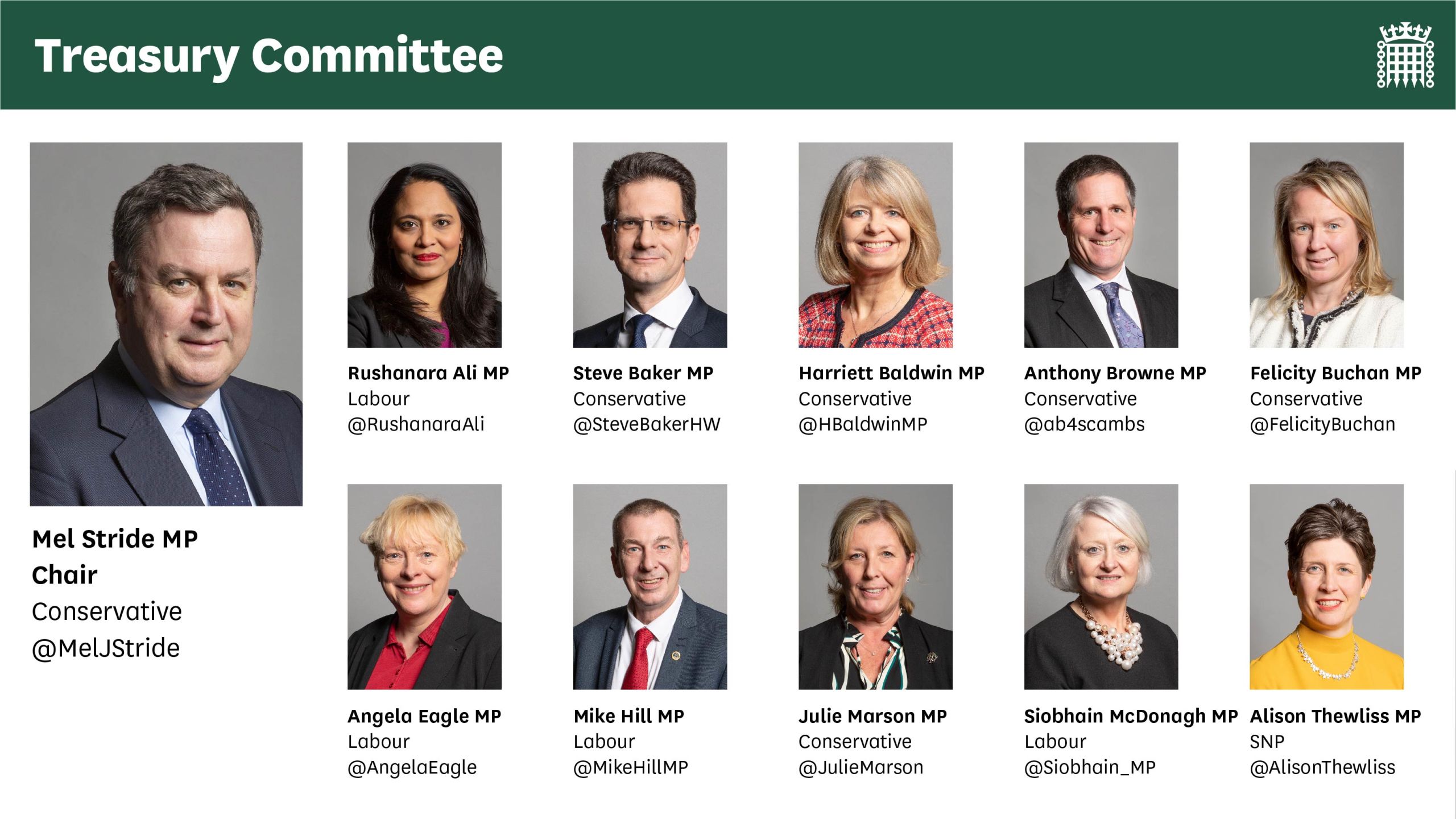What are the challenges to economic recovery from coronavirus?
As the UK comes out of full lockdown, critical challenges to economic recovery remain

Coronavirus has had a significant impact on the UK economy. As lockdown restrictions ease, challenges to recovery have emerged that the Government must address.
In the first report of our inquiry into the economic impact of coronavirus, published 15 June 2020, we looked at gaps in the Government's economic support packages. Read the Shorthand story.
We were disappointed that the Government did not implement our recommendations and over a million people are still affected by the significant gaps that remain.
In the second stage of our inquiry, we look at the key challenges to economic recovery that have emerged.
Recovery of consumer spending
The problem

Coronavirus caused a significant shock to the UK economy.
"[…] the UK is in the largest recession on record. Our latest estimates show that the UK economy is now 22.1% smaller than it was at the end of 2019."
Lockdown meant that shops, restaurants and leisure activities were shut. People could not spend money as they normally would and consumption fell dramatically.
As the Government lifts coronavirus restrictions, consumption is returning. But the prospect of more localised outbreaks and a second wave is dampening a full recovery to pre-pandemic levels of consumer spending.
The economic impact of the crisis has also been felt very unevenly. There is wide variation between sectors and those in low pay, young people, women, renters and ethnic minorities have been hit disproportionately.
Recovery of consumer spending
The Government response

The Government's 'Plan for Jobs', published in July, proposed the below measures to boost consumer spending.
A temporary VAT cut for the hospitality and leisure sectors
From 15 July 2020 to 12 January 2021, a reduced five per cent rate will be applied to food and non-alcoholic drinks from restaurants, pubs, bars and cafes, and accommodation and admission to attractions across the UK.
A temporary cut in Stamp Duty Land Tax
From 8 July 2020 to 31 March 2021, the Government would temporarily increase the Nil Rate Band of Residential Stamp Duty Land Tax in England and Northern Ireland, from £125,000 to £500,000.
The 'Eat Out to Help Out' scheme
To encourage people to return to eating out, the scheme entitled diners to a 50 per cent discount of up to £10 per person on their meal at any participating food service establishment.
The discount was valid from Monday to Wednesday for the entire month of August 2020 and could be used an unlimited amount of times on any eat-in meal, including non-alcoholic drinks. The Government reimbursed participating restaurants for the discount.
There is some early evidence that these approaches have helped this hard hit area of the economy. But ongoing social distancing restrictions are likely to limit the effectiveness of such schemes. Consumers fearful of both the virus and their job security may still be reluctant to spend.
Avoiding long term unemployment increases
The problem

One of the critical challenges facing the Government is combating long-term unemployment.
In the Office for Budget Responsibility's (OBR) 'Fiscal Sustainability Report 2020' (PDF), their central scenario sees unemployment peak in the fourth quarter of 2020 at 11.9 per cent.
Many witnesses recognised that the Government faced a daunting challenge in maintaining a balance between preventing unemployment from rising sharply but allowing some labour market flexibility to enable workers to move from shrinking sectors to growing sectors in the economy.
Avoiding long term unemployment increases
The Government response

The Coronavirus Job Retention Scheme (CJRS)
The CJRS was put in place to prevent unemployment rising immediately during lockdown. It subsidised workers' wages up to 80 percent.
Witnesses praised the CJRS for successfully preventing sharp rises in unemployment in the early stages of the crisis. Government data published in July shows that up to the end of June, 9.4 million employees had been placed on furlough, 1.14 million employers had made at least one claim and the total claimed was £26.5 billion.
The CJRS will come to an end in October. Witnesses expressed concerns that unemployment would surge once the Government stopped subsidising wages.
"We need to get ourselves into the frame of mind where we are thinking about 1980s levels of unemployment."
Sectors suffering most from social distancing may still require Government help. Torsten Bell, Chief Executive of the Resolution Foundation, pointed out that the sectors that contributed to the highest job growth in the last crisis, hospitality and non-food retail, had been the hardest hit in the current recession so would not be able to perform the same role in creating jobs this time round.
A Plan for Jobs
The Chancellor's 'Plan for Jobs' announced several measures aimed at addressing the risks of rising unemployment, including:
- Job Retention Bonus - A one-off payment of £1,000 to UK employers for every furloughed employee who remained continuously employed through to the end of January 2021.
- Kickstart Scheme - A £2 billion fund to create "high quality" six-month work placements aimed at those aged 16-24 who are on Universal Credit and deemed to be at risk of long-term unemployment.
- New incentives for employers to take on apprentices - A new payment of £2,000 to employers in England for each new apprentice they hired aged under 25, and a £1,500 payment for each new apprentice they hired aged 25 and over, from 1st August 2020 to 31st January 2021.
Concerns have been raised that the Job Retention Bonus is not effectively targeted. Robert Chote of the OBR observed that a large proportion of the scheme would go to employers for workers who they would have paid anyway, leading to a deadweight cost.
Meanwhile, though supporting high quality training for young people and those who may find it difficult to find new jobs is critical, some witnesses told us that the UK has a poor quality of vocational training. Improving its quality is crucial to both improving employment outcomes and output.
Changes to Universal Credit
Those who lose their jobs may rely on the Government's safety net, Universal Credit. On 20 March the Chancellor announced changes to Universal Credit for 12 months, including:
- A temporary increase in both the Universal Credit Standard Allowance and the Working Tax Credit Basic Element by £1,040 a year, on top of the planned uprating.
- A temporary increase in housing support for private renters through Local Housing Allowance (LHA) rates.
- The temporary relaxation of the requirements of the Universal Credit Minimum Income Floor.
- People directly affected by COVID-19 or self-isolating, in line with Government guidance, are allowed to claim Universal Credit and access advance payments upfront without the requirement to attend a jobcentre.
Corporate debt
The problem

Corporate debt is significant in itself, but there is an added risk that the recession may be prolonged because businesses burdened with debt choose not to employ or recruit more people.
The Government has initiated different types of business loan schemes to try and avoid businesses failing as a result of the pandemic. The Government also initiated some grant schemes, which were more targeted at small businesses or the hospital and leisure industry.
We received significant evidence that there was a risk the recession could be prolonged through a 'balance sheet recession' in which businesses, overburdened by debt, would not recruit or invest.
"Up to 3 million jobs across the UK and 780,000 SMEs [small and medium-sized enterprises] are at risk if urgent action isn’t taken to tackle the projected £35bn of unsustainable debt from Covid-19 loans."
We are concerned that there may be a significant lack of capacity and willingness for the private sector to step in to provide solutions for corporate indebtedness, especially amongst SMEs.
We heard several potential solutions for this, including contingent tax liability or student loan type structures, where repayments are conditional on SMEs demonstrating appropriate financial health.
Longer term challenges

Government debt sustainability
One legacy of the crisis will be a sharp rise in the level of public debt and, possibly, an ongoing rise in borrowing.
This has been and will be necessary to contain the economic damage from coronavirus and does not raise immediate debt sustainability concerns. But it will make the job of stabilising the public finances in the long term more difficult.
"Levelling up"
In his first speech after becoming Prime Minister on 24 July 2019, the Prime Minister stated his intention was to "level up across Britain".
One of the priorities of the Spending Review launched in July 2020 is "levelling up economic opportunity across all nations and regions of the country".
Although the Government frequently refers to "levelling up", it has not yet spelled out which regional imbalances in particular it wants to tackle. It is not yet clear what it means, how it will be implemented and measured, and may need reviewing in light of the impact of coronavirus.
The international dimension
The UK's success in dealing with the health pandemic is partially dependent on success in dealing with the global crisis.
"We are dependent, from a health point of view, on every other country in the world doing better than we do, or doing a good job of it. We are also dependent on international supply chains and all those things reopening properly."
Five ways the Government could respond to these challenges

The Chancellor should carefully consider targeted extensions of the Coronavirus Job Retention Scheme (CJRS).
Many businesses suffering from the impact of social distancing will have a viable long-term future but only if they continue to be supported beyond the expiry of the CJRS.
The Government must outline a plan to help viable SMEs to recapitalise their balance sheets.
Viable SMEs struggling with debt will prolong the recession.
The Government should consider extending the current increased generosity and accessibility of Universal Credit beyond the deadline.
These changes are currently time-limited for a year.
The Chancellor should, at the next fiscal event, set out an initial roadmap of how he intends to place Government finances on a sustainable footing.
The milestones on that roadmap will need to be flexible - tax increases imposed too early may well stifle economic recovery.
In order to prevent "levelling up" becoming an empty slogan, the Government should clearly outline its definition and objectives at the next fiscal event.
This strategy should include the indicators that will gauge its success.

The Government must now respond to our report.
Our report, Economic impact of coronavirus: challenges to recovery was published on 11 September 2020.
Detailed information from our inquiry can be found on our website.
If you’re interested in our work, you can find out more on the House of Commons Treasury Select Committee website. You can also follow our work on Twitter.
The Treasury Committee is a cross-party committee of MPs appointed by the House of Commons to examine the expenditure, administration and policy of HM Treasury, HM Revenue & Customs, and associated public bodies, including the Bank of England and the Financial Conduct Authority.
Cover image credit: Ch AFleks, Pixabay.com

